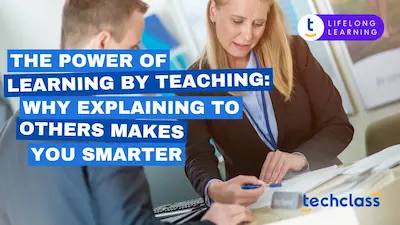
In today’s interconnected world, learning is no longer limited to academic classrooms or professional training. For people committed to personal development, lifelong learning increasingly means stepping outside one’s cultural comfort zone. Cross-cultural learning, gaining knowledge, insight, and empathy through exposure to different traditions, beliefs, and social practices, offers a powerful, ongoing way to build a broader perspective.
Whether through travel, digital exchange, community dialogue, or cultural storytelling, exploring other cultures opens doors to deeper understanding, personal growth, and real-world skills that evolve with you throughout life.
When we explore other cultures, we go beyond facts, we immerse ourselves in new ways of thinking, communicating, and living. This challenges the mental frameworks we unconsciously carry, prompting us to ask new questions and adopt new viewpoints.
Cross-cultural learning expands your mental landscape. It helps you see that concepts like respect, time, communication, and even humor are shaped by context. As you engage with diverse perspectives, your ability to analyze, reflect, and adapt improves, cornerstones of any lifelong learning journey.
At the heart of cross-cultural learning lies empathy, the ability to understand experiences and emotions different from your own. For learners, cultivating empathy isn’t just emotional work; it’s intellectual growth. It requires curiosity, active listening, and a willingness to be changed by what you learn.
Whether you’re reading global literature, sharing meals with people from different backgrounds, or joining virtual cultural exchange forums, you’re learning to relate to others with deeper insight. And this empathy fuels long-term personal development by helping you interact more thoughtfully with the world around you.
Lifelong learning is about acquiring skills that remain relevant across changing contexts. Cultural competence, the ability to engage respectfully and effectively with people of different cultural backgrounds, is one of those enduring, transferable abilities.
You build this competence not only by learning about other traditions but also by examining your own assumptions and biases. Participating in cultural workshops, attending local festivals, or working alongside people from diverse backgrounds are practical ways to nurture cultural understanding. These experiences refine your adaptability, collaboration, and interpersonal communication, skills that serve you across all areas of life.
You don’t need to travel far to explore new cultures. Today’s digital world offers countless opportunities for cultural learning. Through online storytelling, video discussions, virtual classrooms, and cultural webinars, learners can connect with people across the globe in real time.
These virtual spaces encourage reflective conversations, enabling learners to hear personal narratives and engage in mutual learning. Whether it's a shared podcast discussion or an online language exchange, digital tools bring cultural diversity directly into your lifelong learning toolkit.
True lifelong learning isn’t just about adding knowledge, it’s also about unlearning assumptions. Cross-cultural experiences often invite us to reflect on deeply held beliefs, revise judgments, and shift perspectives. For adult learners, this is a vital part of self-awareness.
For instance, encountering cultural practices around community, time management, or communication might reveal alternatives to your own habits, and challenge what you considered “normal.” These moments of insight can be transformative, encouraging a mindset that’s more open, humble, and prepared for growth.
Language is deeply tied to culture, and learning even a few phrases from another language gives insight into how a culture views the world. But communication goes beyond vocabulary, it includes gestures, tone, eye contact, and even silence.
Understanding these cultural layers sharpens your communication skills, an essential part of lifelong learning. You learn not just how to speak, but how to listen across cultural lines. This makes you a better collaborator, negotiator, and learner, able to engage meaningfully in diverse environments.
Cross-cultural learning encourages us to live more consciously and more inclusively. By exploring how others think, relate, and navigate the world, we become better at doing the same for ourselves. This builds a richer, more resilient foundation for lifelong learning, one that is always evolving.
Through cultural learning, you not only gather knowledge, you build awareness, empathy, and skills that continue to grow with you. And in a world where change is constant, that kind of learning may be the most valuable of all.
Lifelong learning isn’t about staying in your comfort zone, it’s about expanding it. Cross-cultural learning invites you to step outside familiar boundaries, engage with difference, and discover new ways of thinking. Whether through a conversation, a story, or a shared experience, every cultural exchange becomes a lesson that lasts a lifetime.
You don’t need a passport to begin. Just curiosity, openness, and the willingness to keep learning, about others, and about yourself.
While developing cross-cultural competence is a deeply personal journey, organizations face the complex challenge of scaling this mindset across a diverse or international workforce. Manually managing localized training or facilitating virtual exchanges across time zones often creates significant administrative hurdles that can stall growth.
TechClass provides the modern infrastructure needed to turn these cultural insights into a scalable organizational strength. By leveraging AI-powered translation to localize content and social learning features to encourage peer-to-peer dialogue, TechClass helps teams bridge geographical and cultural gaps. Our platform supports the development of soft skills and empathy through interactive learning paths, ensuring that your commitment to lifelong learning translates into a more inclusive and effective workplace for everyone.


